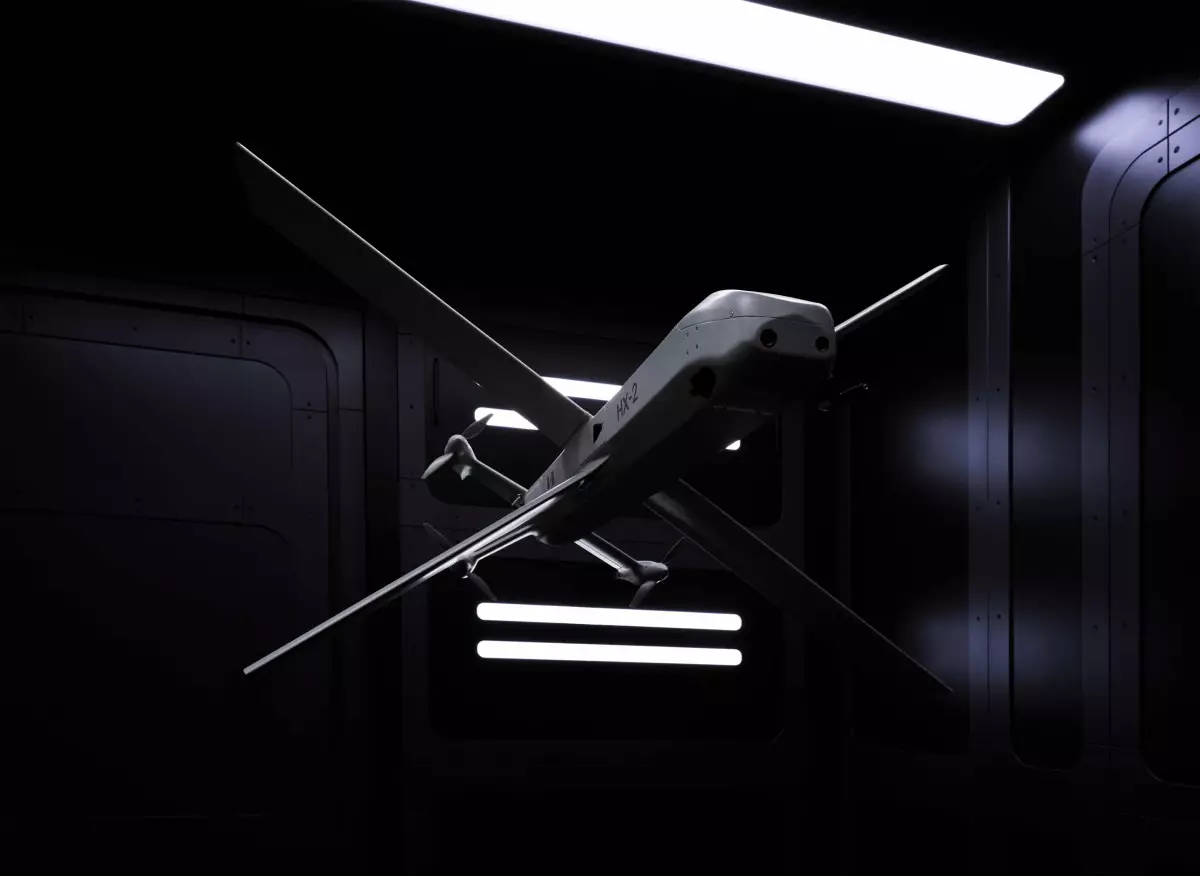Helsing, a German defense technology startup, is making waves in the military drone market with backing from notable figures, including Spotify’s co-founder Daniel Ek. The company has ramped up its production of the HX-2 strike drones, following the significant order of 4,000 HF-1 drones intended for Ukraine. In a recent statement, co-founder Gundbert Scherf highlighted the need for increased output in response to additional orders from Ukraine, indicating an urgent requirement for advanced military technology in the ongoing conflict.
The timing of this announcement raises questions about the future of the war, especially as diplomatic talks are set to take place between U.S. President Donald Trump and Russian President Vladimir Putin. With the prospect of negotiations in the air, the urgency for new strike capabilities might be seen as both a strategic advantage and a preventive measure to counteract potential threats during uncertain geopolitical dynamics.
Helsing’s transition from an artificial intelligence (AI) software company to a prominent manufacturer of military drones signifies a remarkable pivot in its business model. Initially, the company was focused on AI development, but it now claims to have established itself as one of the largest drone manufacturers on the global stage, a statement supported by its rapid growth and expansive production plans. The HX-2 models, in particular, illustrate the firm’s commitment to integrating sophisticated technology into its drone lineup.
The efficacy of strike drones, especially FPV kamikaze drones, has been manifest during the Russian-Ukrainian conflict. Such drones have proven essential in bolstering Ukraine’s military capabilities, providing a tactical edge despite the adversary’s advantages in manpower and armament. Helsing’s approach to developing drones capable of swarm coordination introduces a new dimension to aerial warfare that prioritizes flexibility and precision, potentially redefining conflict management strategies.
One of Helsing’s unique selling points lies in its dual focus on hardware and software. Co-founder Niklas Köhler recently underscored that the company is not merely a fabricator of drones but is instead drastically innovating in the software domain. The integration of AI within their systems, particularly through the Altra platform, allows for significant operational advantages, such as targeting capabilities even in environments where communication signals may be compromised. This innovative blend of technologies is intended not only to improve drone performance but also to streamline production, emphasizing Helsing’s focus on scalable manufacturing.
While the HX-2 drones exemplify advanced design principles, Helsing is keen on maintaining affordability in their production. Although they have not publicly revealed pricing, the emphasis on reducing unit costs while scaling production volumes presents a competitive advantage over existing models like the AeroVironment Switchblade. By ensuring that their drones are economically viable, Helsing positions itself favorably in a market where budget constraints often dictate procurement choices for defense departments.
To fortify its production capabilities, Helsing is constructing “Resilience Factories” across Europe, diverging from a centralized manufacturing model. This strategy fosters flexibility by enabling local sourcing and workforce engagement in line with national defense procurement criteria, which often emphasize local production for sovereignty reasons. Their first facility, operational in Southern Germany, boasts an impressive monthly output capacity of over 1,000 HX-2 drones, with the potential to ramp up to tens of thousands in times of conflict.
The establishment of these factories signifies a strategic move to enhance Europe’s defense manufacturing footprint, particularly as characterized by a report from Dealroom and NATO’s Innovation Fund showcasing Germany’s preeminence in defense funding for 2024. This context highlights how companies like Helsing are playing a significant role in positioning Germany and, by extension, Europe as a key player in global defense strategies.
As the geopolitical landscape in Europe continues to evolve, Helsing’s initiatives reflect a broader shift towards greater self-sufficiency and technological innovation in defense. The recent collaboration with French AI firm Mistral announces a commitment to AI-driven defense readiness, aligning with the concept that Europe’s strength lies in its technological leadership. Helsing’s emergence not only contributes to advancements in drone technology but also emphasizes the regional imperative to become a formidable actor in global security dialogues.
Helsing is not merely producing military drones; it is redefining the paradigms of defense technology in Europe. By integrating cutting-edge AI with scalable manufacturing and local production, it positions itself as a catalyst for change amid the pressing requirements of modern warfare. As this startup continues to grow, it is likely to play an increasingly crucial role in shaping the dynamics of European defense in the years to come.

